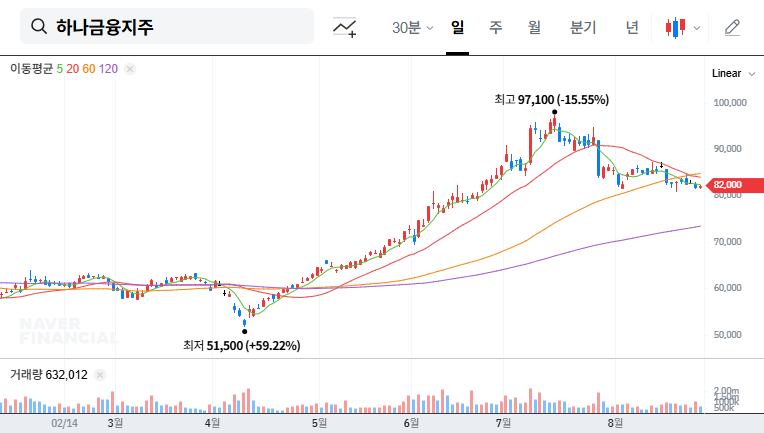
1. Hana Financial Group’s IR: What Happened?
Hana Financial Group presented its key management performance and future outlook at the “Korea Days 2025” IR hosted by Daiwa Securities on September 1, 2025. This IR garnered significant attention, especially following the recent correction disclosure of their semi-annual report.
2. Why is it Important?
This IR goes beyond a simple earnings announcement; it serves as a crucial platform for ensuring transparency regarding the company’s financial status and management activities, and for communicating with market participants, including international investors. Particularly in the current market environment characterized by increasing interest rate and exchange rate volatility, this event provides a valuable opportunity to understand Hana Financial Group’s response strategies and future growth plans.
3. Hana Financial Group’s Fundamentals: Strengths and Weaknesses
3.1 Strengths
- Solid Profitability: Stable profit generation based on a diversified business portfolio.
- Strong Financial Soundness: High resilience against market volatility due to excellent BIS ratio.
- Future Growth Drivers: Pursuit of sustainable growth through digital transformation and new business investments.
- Shareholder-Friendly Policy: 50% shareholder return target, quarterly dividends, share buybacks/cancellations.
3.2 Weaknesses (Risks)
- Sensitivity to Macroeconomic Variables: Impact from external factors such as interest rate and exchange rate fluctuations, and real estate PF risks.
- Intensifying Competition: Increasing competition with internet banks and fintech companies, and changes in the regulatory environment.
4. Action Plan for Investors: What to Do?
Investors should carefully review the IR materials and subsequent disclosures, continuously monitoring Hana Financial Group’s response strategies to changes in macroeconomic indicators and its growth potential. It is crucial to pay close attention to its sensitivity to interest rate and exchange rate fluctuations, its credit risk management capabilities related to specific industries, and the performance of its digital transformation and new businesses.
FAQ
What were the key takeaways from Hana Financial Group’s IR?
The key takeaways include the announcement of the 2025 first-half business performance, the future management outlook, and information regarding the recent correction disclosure of the semi-annual report.
What are the key considerations for investment?
Investors should consider the influence of macroeconomic variables such as interest rate and exchange rate fluctuations, intensifying competition, and credit risks related to specific industries.
What are the future growth drivers for Hana Financial Group?
The main growth drivers are accelerating digital transformation, AI asset management, strengthening non-face-to-face services, and investments in new businesses like Fintech.

Leave a Reply